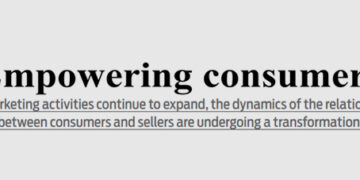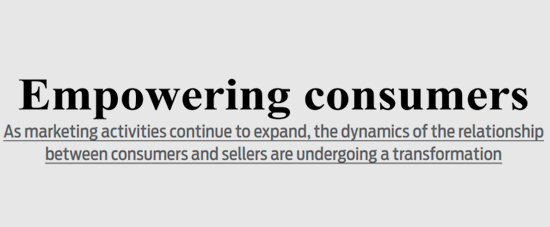 OBSERVED globally as World Consumer Rights Day, March 15 serves as a reminder of consumers’ entitlement to protection against unjust trade practices and their right to access safe, high-quality products and services.
OBSERVED globally as World Consumer Rights Day, March 15 serves as a reminder of consumers’ entitlement to protection against unjust trade practices and their right to access safe, high-quality products and services.
The significance of the day traces back to March 15, 1962, when the then US President John F. Kennedy introduced the Bill of Rights in Parliament, formally addressing consumer rights. In his speech, President Kennedy remarked, “If a consumer is offered inferior products, if prices are exorbitant, if drugs are unsafe or worthless, if the consumer is unable to choose on an informed basis, then his dollar is wasted, his health and safety may be threatened and national interest suffers.” The four fundamental rights he highlighted for American consumers were the (i) right to safety, (ii) right to choose, (iii) right to information, and (iv) right to be heard.
Since that historic moment, Consumers International, a global membership organisation representing consumer groups with 200 member organisations across 100 nations, has commemorated March 15 as World Consumer Rights Day. This year, the theme for World Consumer Rights Day was ‘Fair and Responsible Artificial Intelligence for Consumers’.
As marketing activities continue to expand, the dynamics of the relationship between consumers and sellers are undergoing a transformation. The validity of the age-old saying ‘Consumer is King’ is now a subject of debate in the current marketing landscape. On one side of the argument, consumers are endowed with scores of pro-consumer legislations aimed at safeguarding their rights in the market, positioning them as the ‘Kings of the Market.’ The expectation is that marketers will furnish them with the appropriate products or services at fair prices and promptly address any issues that may arise.
However, the reality often diverges from this ideal scenario. In pursuit of maximising profits, sellers and manufacturers, at times, engage in practices that exploit consumers, creating a discord between the proclaimed consumer-centric ideals and the actual experiences of individuals in the marketplace. A recent study by ASSOCHAM revealed that 40 per cent of Indians are not aware about how and where to file a complaint if the manufacturer gives them a sub-standard product or service. Even as we are in the second decade of the 21st century, the consumer movement in India remains in its early stages, necessitating significant encouragement to evolve into a widespread mass movement.
In a move to shield consumers from exploitation, a significant development in consumer advocacy was the introduction of the Consumer Protection Act, 1986 in India, later replaced by the Consumer Protection Act, 2019. This legislation sets up a legal framework dedicated to enhancing consumer protection by instituting a formal yet quasi-judicial dispute resolution mechanism exclusively for consumers. The forward-looking law establishes a three-tier quasi-judicial consumer dispute redressal system at the National, State and District levels, aiming to offer consumers simple, swift and cost-effective resolutions. Presently, the country has 678 operational District Commissions, 35 State Commissions and the apexlevel National Commission.
CCPA draft guidelines
In the effort to combat misleading and deceptive advertising, the Central Consumer Protection Authority (CCPA), established under the Consumer Protection Act, 2019, has recently released draft guidelines for the prevention and regulation of greenwashing and misleading advertisements related to coaching institutes. These guidelines are currently open for public comments.
According to the draft guidelines, certified medical practitioners and health/fitness experts holding certifications from recognised institutions must openly disclose their credentials when sharing information, promoting products or services or making any health-related claims. This measure aims to improve transparency and credibility in the promotion of health and wellness.
When celebrities, influencers and virtual influencers position themselves as health specialists or medical practitioners and share data, endorse products or services or make health-related statements, they are required to include clear disclaimers. These disclaimers are crucial to prevent the audience from interpreting these endorsements as substitutes for professional medical advice, diagnosis or treatment. Instances have arisen where celebrities and influencers make bold claims, like endorsing a specific brand of tea as a cure for health issues. Similar misleading claims were observed during the Covid-19 pandemic, emphasising the need for caution and accuracy in health-related communications.
















